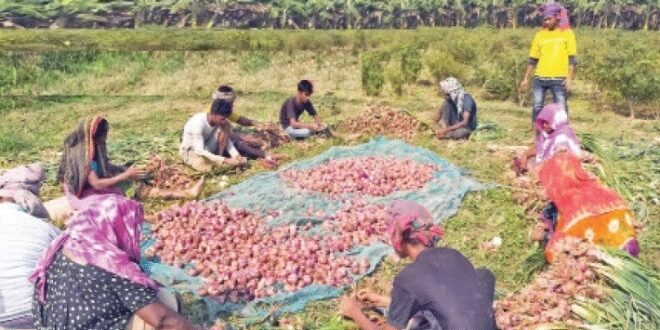Despite their tireless efforts to ensure food securities for the nation, farmers themselves are among the most vulnerable to food insecurity – struggling to put enough food on their own tables.
The latest report by the Bangladesh Bureau of Statistics (BBS) titled “Food Security Statistics 2023” reveals that 26.13% of households dependent on agriculture in the country experience food insecurity.
While food insecurity remains a concern across various sectors, households engaged in other occupations fare slightly better, with an average food insecurity rate of 20%, says the BBS report.
Households engaged in agriculture experience the highest levels of food insecurity, followed by remittance at 18.91%, industry 19.09%, income recipients 20.08%, service 20.32%, and others 21.85%, respectively.
The report exposes the harsh reality of the agricultural profession. Families directly involved in farming, the backbone of the nation’s food security, are disproportionately affected by this crisis.
The consequences of this food insecurity are far-reaching. Over the past year alone, approximately 1.58 million individuals have left the agricultural sector due to various challenges. This exodus impacts both food production and the country’s GDP.
The BBS report indicates a decline in the agricultural sector’s contribution to GDP, dropping from 3.42% in FY2019-20 to 3.37% in FY2022-23. Additionally, the percentage of citizens engaged in agriculture has shrunk from 47.03% in 2011 to 37.91% in 2022.
Experts highlight a complex array of factors contributing to food insecurity among farmers. Financial constraints often compel farmers to sell their produce immediately after harvest, leaving little for their own families. This reliance on immediate income drives them to purchase food at inflated market prices, perpetuating a detrimental cycle.
Dr Zahid Hussain, former lead economist at the World Bank’s Dhaka office, explained to the Daily Sun that farmers encounter food insecurity due to various challenges.
“Financial instability and a lack of storage space force farmers to sell their produce immediately after harvest,” he noted. “These goods are frequently bought by syndicates and middlemen at low prices, leaving farmers vulnerable. Consequently, when farmers need food for themselves, they are compelled to purchase it at higher rates from others.”
Dr Zahid stressed that the low income of farmers significantly contributes to their inability to buy food, thus exacerbating food insecurity.
To tackle this issue, he suggested that the government should facilitate food storage facilities for small and medium-scale farmers. Additionally, he recommended improved monitoring mechanisms to ensure that these farmers effectively receive agricultural loans.
Furthermore, he proposed providing alternative job opportunities or small businesses for farmers during non-farming periods as potential solutions to enhance their food security.
Professor Mustafizur Rahman, a distinguished fellow of the Centre for Policy Dialogue (CPD), told the Daily Sun that inflation is the primary reason for food insecurity. He pointed out the challenges in controlling inflation due to delays in importing essential products and price hikes by syndicates.
However, the country has witnessed a significant rise in overall inflation over several years, reaching 9.67% in February of the current year. According to the Bangladesh Bureau of Statistics (BBS), the average inflation rate was 5.56% in FY21, 6.15% in FY22, and 9.02% in FY23.
(DS)
 Welcome to Business Outlook
Welcome to Business Outlook




